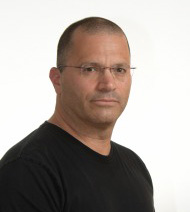Enoch Wins $1 Million Grant for Work on Liberalism
David Enoch, professor of philosophy and law at Hebrew University of Jerusalem, is the recipient of a roughly $1 million grant for a project called “Liberalism Rekindled”.

The grant is from Israel Science Foundation and its “Breakthrough Research” program, which was set up “to provide support for exceptional and high-quality research that is high-risk-high-gain”.
Here’s a description of the project:
This project rests on two underlying (tentative) assumptions: First, when it comes to the most fundamental parts of normative political philosophy, the liberal tradition has gotten things roughly right. Second, the liberal tradition has also gotten a lot wrong, and many of the criticisms launched at that tradition are justified, and incorporate important insights. This kind of liberalism is worth rekindling, because it got the fundamentals right. And it needs rekindling because as it stands, it got too many of the details wrong, so that without such rekindling work it cannot nowadays play the role that a comprehensive, fundamental political philosophy ought to play, and perhaps it never could. Therefore, systematic, complex philosophical work is needed in order to show how liberalism can not only respond to criticisms but incorporate the important insights underlying them, without compromising the central liberal principles and values. This is the task of this project.
The grant will support a new research group at Hebrew University over the next five years, including postdocs and graduate students.


Great! Congratulations. Important (and timely) project.
Bad ass.
This is a great project, and congratulations to Enoch for landing it. One thing that’s puzzled me about the liberal social and political tradition is whether and to what extent the grounding of the good and the just in the citizen, conceived as a more-or-less distinct and self-contained locus of value and identity, erred in giving too little consideration to background conditions provided by 1) our existence as certain kinds of organisms, and 2) our existence as social collectives.
Concerning (1), it seems clear that we have the capacity, as persons, to determine the normative valence of much of what we do, even when that valence cuts across what is good or proper for us as organisms. The Desert Fathers enjoyed a certain kind of flourishing, and that can be so even if they weren’t living particularly well as hominids in North Africa in the 3rd century. All the same, it seems clear we cannot simply ignore or deny facts about what it is to live well as human beings. How far does that capacity for self-determination extend, and if there’s anything like a line, why is it drawn where it is? It might seem like this is an obscure question in the metaphysics of human persons, or libertarian freedom of the will, with little bearing on the liberal tradition as a social or political philosophy. But a moment’s reflection shows that social policies about, e.g., how we treat men and women and others in the social and political spheres are determined, at least in part, by what we think about the extent of our capacity for self-determination.
Concerning (2), a growing body of research over the last two decades has made clear that the human capacity for shared mental states is something like a defining feature of human cognition, and a scaffolding framework along which our self-identity develops in the first few years of life. Speech is of course a paradigm of our shared mental life, but it’s present at birth in our proclivity to share emotional expression, and it rapidly develops into an interest in triangulating over, working together in, and telling stories about the world around us. I wonder whether classical political liberalism at times prioritized a conception of human life, and the basis of human freedom, as atomic or molecular — and that this didn’t do adequate justice to the communal and shared character of the goods that make human life worth living, and human freedom possible. One might think the communitarian tradition, along perhaps elements of conservatism, post-liberalism, and civic republicanism, would offer an opportunity for aufheben here.